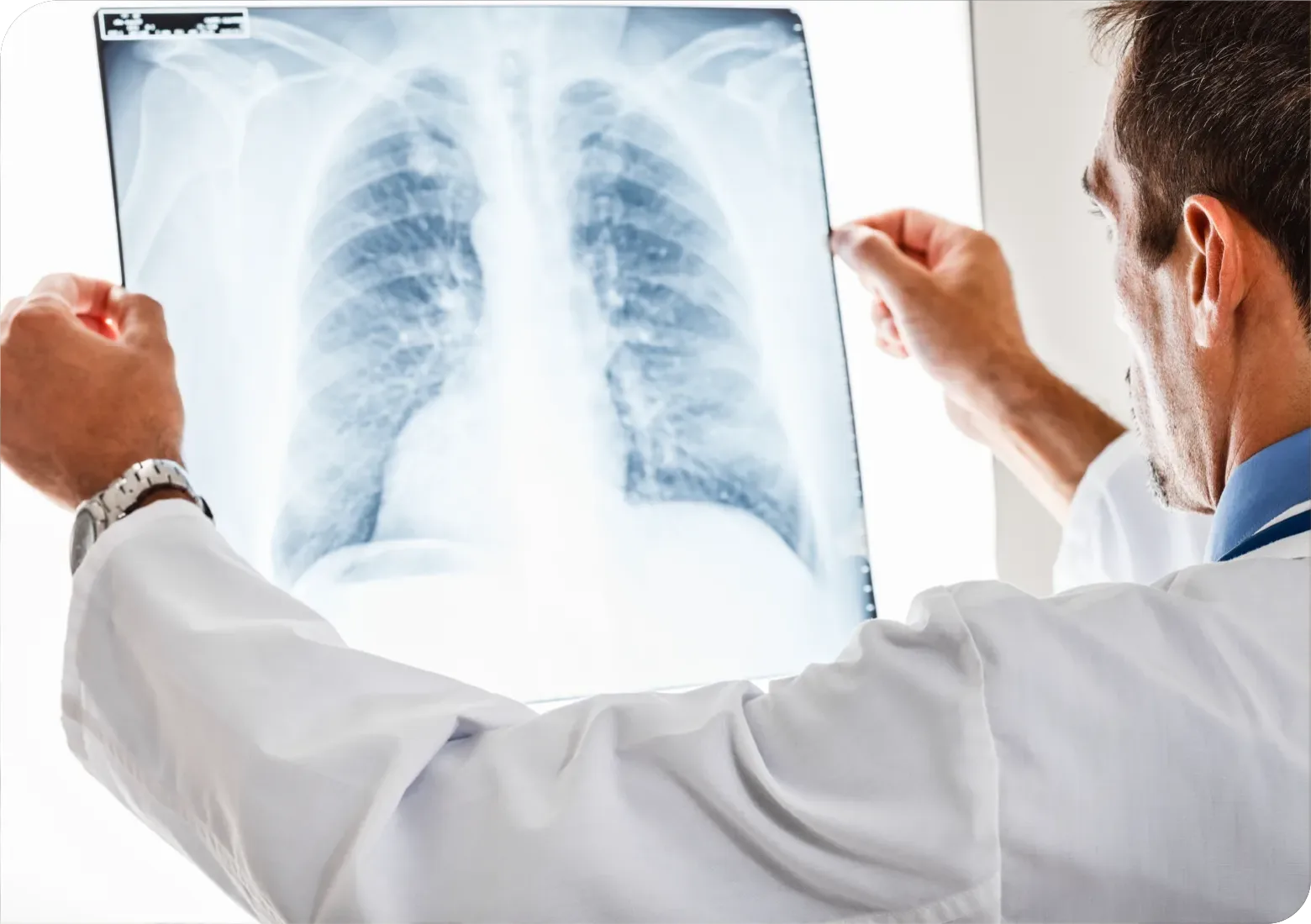Understanding Lung Cancer: Risk Factors, and Who Should be Screened
November 14 • 2023

Did you know that in the United States, lung cancer is the third most common cancer? It’s also the leading cause of death from cancer in the US. Fewer than 1 in 7 lung cancer patients will be diagnosed in the earliest stage, when the disease is most treatable. This is why it’s so important to be aware of lung cancer, if you’re at risk, and if you should be talking to your doctor about screening practices.
Despite being the leading cause of cancer deaths in the U.S., lung cancer isn’t always on everyone’s radar. Learning more about lung cancer can help you better understand the disease, its risk factors, and if you need to talk to your doctor about getting screened.
Risk Factors for Lung Cancer:
1. Smoking
Cigarette smoking is the number one risk factor for lung cancer. Tobacco smoke is a toxic mix of more than 7,00 chemicals and many of those chemicals are poisons. Using cigars and pipes can also increase your risk of lung cancer.
2. Secondhand Smoke
You may think you’re safe because you aren’t physically smoking. But if you’re around a lot of smokers you’re still being exposed to the same toxic chemicals that cause lung cancer.
3. Radon
Did you know that the second leading cause of lung cancer is radon? Radon is a gas that occurs naturally, it’s released from rocks, soil, and water. It’s also odorless and invisible. Radon can get into homes or buildings through cracks and holes; the gas can then get trapped and build up in the air inside. What makes it so dangerous is that people who breathe in high radon levels over long periods of time have a higher risk of getting lung cancer.
Learn how to test your home for radon here.
4. Other Substances
Breathing in asbestos, arsenic, and diesel exhaust can increase your risk for lung cancer. Also, living in areas with high air pollution can increase your risk.
5. Personal or Family History
If you’re a lung cancer survivor, you’ve got a high chance of developing lung cancer again.
Your risk is also higher if family members have had lung cancer in the past. Discussing your family history with your doctor is one of the best ways to stay on top of these risks.
6. Radiation Therapy to the Chest
Cancer survivors who had radiation therapy to the chest are at a higher risk of lung cancer. Be sure that your doctor is aware of any history of radiation treatment.
7. Diet
If you’re drinking water from a private well, please get it checked for arsenic or radon. Having either of these in your drinking water can increase your risk of lung cancer.
Though there is no evidence to show if food causes lung cancer, it’s still important to have a balanced diet. Processed food and alcohol are one of many things that can increase your risk for developing lung cancer.
Screening for Lung Cancer:
The best way to screen for lung cancer is with a low-dose computer tomography. This machine is also called a low-dose CT scan. This scan is non-invasive and very quick to perform. It’s important to be screened if you’re considered high-risk because the early stages of lung cancer and usually symptomless. By the time you do start experiencing symptoms you’re most likely at an advanced stage of lung cancer.
The United States Preventive services task force (USPSTF) recommends yearly lung cancer screening with a low-dose CT scan for people who:
- Have a 20 pack-year or more smoking history (meaning they have smoked a pack a day on average for 20 or more years)
AND
- A current smoker or someone who has quit within the last 15 years
AND
- They are between 50 and 80 years old.
There are risks for screening which is why lung cancer screening is only recommended for adults who are at high-risk for developing lung cancer.
If lung cancer is caught before it spreads, the likelihood of surviving for 5 years or more improves to 63 percent. This is why doctors encourage patients who are at high-risk to get screened.
Being proactive about your health is the strongest defense against lung cancer. Be aware of your risk chances and it’s never too late to stop bad habits now.
If you’re thinking about getting screened schedule an appointment today with your Aylo Health primary care physician. You and your doctor can discuss if a low-dose CT scan is right for you. If it is, then we can do the scan in-house.